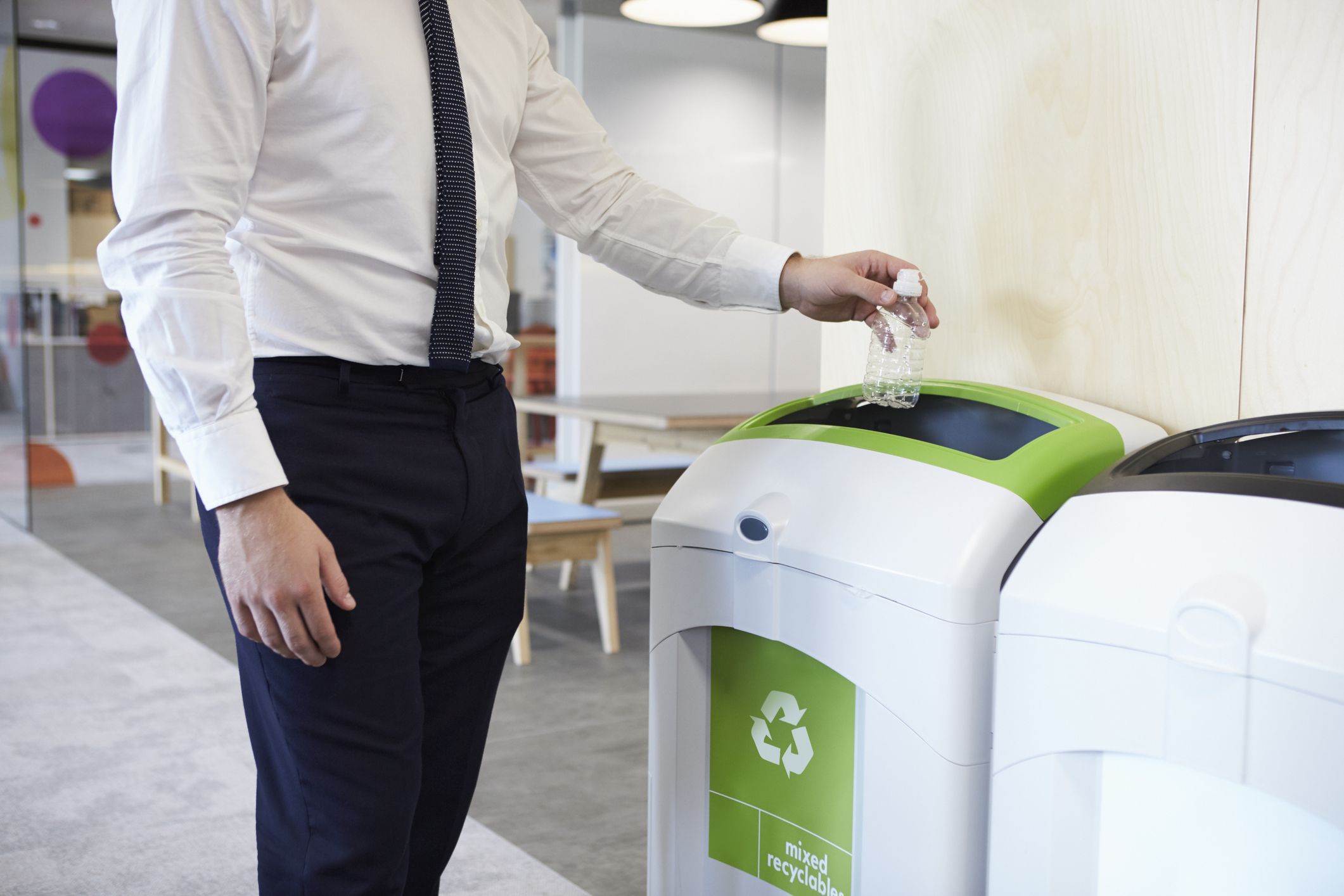
Published date: 29 August 2024
How to recycle better: top tips and busting recycling myths
“84% of UK households are unintentionally contaminating their recycling bins”, Waste and resources action programme (WRAP)
Many people want to recycle and make a difference but are unknowingly contaminating recycling bins and doing more harm than good.
When you try to recycle non-recyclable or dirty items, it can ruin the whole batch. Making it harder for waste to be sorted and separated at recycling centres. In worst cases, when recyclables are contaminated, what you intended to recycle ends up in landfill.
With lots of unclear recycling guidelines and misleading information, it’s easy to feel overwhelmed.
In this blog, we’ll:
- share tips to help you recycle better
- clear up common recycling myths
- explain key plastic recycling numbers
How can you recycle better at your site?
1. Say no to personal bins: If there’s a shortage of accessible recycling bins at your site, you’re, understandably, more inclined to use personal bins for convenience. This means everything, including your recyclables, go into the same bin and nothing gets recycled. It’s important to have plenty of accessible recycling bins in busy areas of your building so it’s easier for you and your patients to put waste in its place.
2. Label bins with posters: To help make sure waste gets thrown in the right bins, stick labels on your bins and display posters to provide clear information on what can and can’t be thrown in each bin. By doing this, you’ll educate and remind patients and your colleagues how to correctly dispose of their waste. You can download waste bin labels and posters on our Waste page.
3. Educate your colleagues on recycling: To create a culture of recycling at your site, it’s important to have regular conversations about why recycling matters. Running training sessions, can help show your colleagues how to correctly dispose of medical, recyclable and general waste.
Don’t fall for these common beliefs about recycling!
Not all paper and plastics are recyclable! For example, paper hand towels are commonly misunderstood as recyclable when they should be disposed in general waste bins.
It’s important that you know what can and can’t be recycled so you put your waste in the right bin.
Watch the video to learn about four surprising things you can’t recycle.
Do you understand plastic recycling numbers?
Do you know what the recycling numbers on your plastic packaging mean? They tell you the type of plastic your item is made of and how it can be recycled.
Each type of plastic has a different recycling process and can be recycled into different things.
For example, your drink bottles can be recycled to make clothing but your petri-dishes are not easily recyclable and should be disposed of in general waste bins.
Download our cheat sheet on the 7 types of plastic.

Want more information on recycling and clinical waste?
Visit the waste page on our website for posters, labels and guidance that will help you increase recycling and correct waste disposal in your building.





